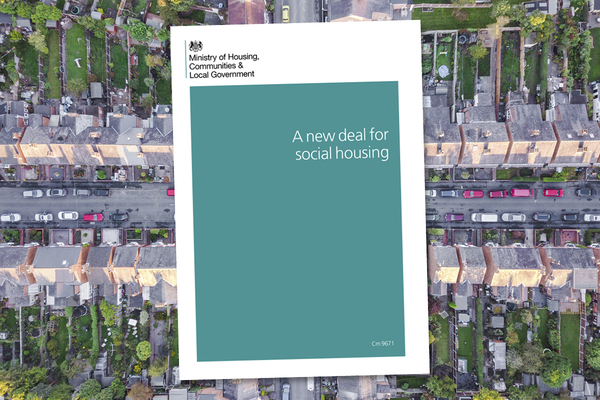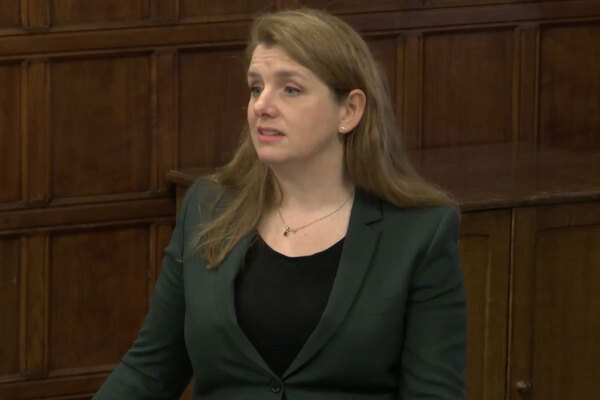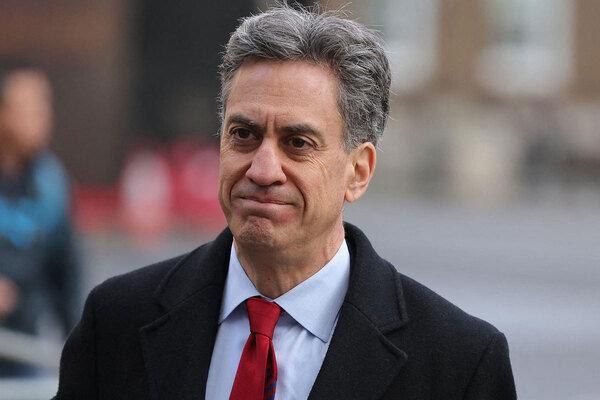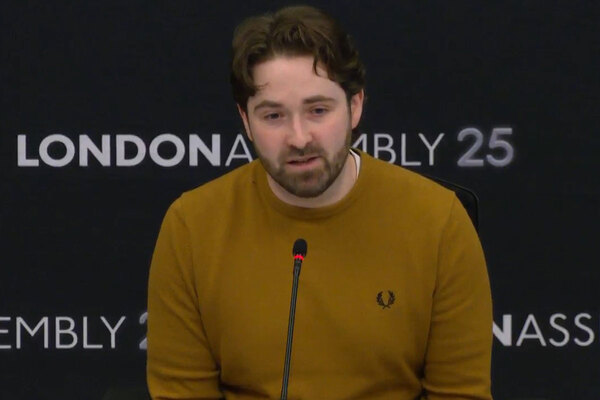You are viewing 1 of your 1 free articles
 Jules Birch
Jules BirchThe Housing Act 30 years on – is it losing its power?
Thirty years ago this week, the Housing Act 1988 received Royal Assent. It was to drastically change the face of housing but there are signs that it may finally be losing its influence, writes Jules Birch

This week marks the 30th anniversary of the Royal Assent for the act that set the framework for the housing system as we have known it ever since – but as its influence wanes, is it going into reverse?
The Housing Act 1988 led to lasting change in social and private rented housing. Not everything happened at once – some provisions were amended in later legislation and some took time to have an effect – but this was what set the basic ground rules for what followed.
In the social rented sector it meant private finance, higher rents, stock transfer and housing associations replacing local authorities as the main providers.
In the private rented sector it meant the end of security of tenure and regulated rents and the arrival of assured shortholds and Section 21.
But it also created a system that was full of contradictions that are now only too clear. The stage was set for the revival of rentier landlordism but also the eventual decline of homeownership, the fall of municipal empires but the rise of mega housing associations, and a belief that housing benefit could ‘take the strain’ of higher rents that always seemed unlikely and drained away with austerity.
“In the social rented sector, the act meant private finance, higher rents, stock transfer and housing associations replacing local authorities as the main providers.”
On the anniversary, it’s useful to take a step back and look at what the politician behind the changes was trying to achieve.
Nicholas Ridley was far more than just the environment secretary at the time, he was also one of the key architects of Thatcherism.
Looking back at the 1988 act 30 years on, what is striking is that he conceived his bill as a coherent whole rather than a series of piecemeal changes.
For Mr Ridley, the housing system featuring council housing and rent control that developed after the First World War was an aberration that had failed to provide decent homes. His changes were about returning things to ‘normal’ and allowing the market to operate.
The explicit shift from bricks and mortar to personal subsidies was presented as a way to restore “independence and self-motivation” to communities, and Mr Ridley argued that higher rents would give a fair return to private landlords and enable housing associations to raise private finance.
The same system of assured and shorthold tenancies would apply across what he saw as “the independent rented sector”.
Both would be underpinned by housing benefit that he claimed would cover all rents with only a few exceptions (such as where the rent was judged unreasonably high or the property too big for the household).
He assumed that most people with income above housing benefit levels would want to buy and that, thanks to mortgage tax relief, buying would often be cheaper than renting.
For council tenants who could not afford to buy their homes, choice would be extended to allow them to pick different landlords.
These were the legislative building blocks for the housing system we have today, one in which housing associations have transformed themselves from a voluntary movement into major businesses, local authorities were pushed further down the path of decline and the private rented sector doubled in size.
“The supposedly liberating tenants choice regime it introduced was only used a handful of times”
However, not everything about the 1988 act had a lasting impact and some of it proved to be an embarrassing failure: for example, the supposedly liberating tenants choice regime introduced was only used a handful of times and most famously by tenants winning their freedom from Conservative-controlled Westminster City Council.
And that is perhaps a clue to much bigger problems that lie at the heart of the system created by the act and changes to housing finance before and after it, that saw council housing shackled, building societies become banks, global finance replace savings as the main source of funding for mortgages, and the invention of buy to let to fuel the growth of buy to let.
I’m not sure that even Mr Ridley could really have believed that housing benefit would continue to take the strain of his higher rents even if he needed to say that it would at the time.
But could he have imagined that the changes he helped to unleash would eventually lead to the decline of homeownership rather than the rise he took for granted?
“I’m not sure that even Mr Ridley could really have believed that housing benefit would continue to take the strain of his higher rents.”
As for social housing, in the second reading debate in 1987, Mr Ridley argued that “mass landlord provision has failed to give tenants what they want”.
“Local authorities have found themselves landlords of vast numbers of houses, flats and maisonettes—about 50,000 is not an uncommon number in the larger metropolitan authorities.”
What would he have made, I wonder, of housing associations that own not just 50,000 but up to 125,000 homes?
And would he have seen the scale of stock transfer as evidence of the success of his revolution or of the resilience of local authorities who still own 1.6 million homes in England, in many cases after tenants used their choice to reject new ownership?
Above all, is the system that his act did so much to create finally beginning to break down?
In social housing, the tide of free market radicalism seems to be receding after recent U-turns on policies that would have sold off even more council houses and made fixed-term tenancies compulsory for new tenants.
While the more commercial world he did so much to usher in looks more secure, there are growing calls to switch back from personal to bricks and mortar subsidies.
The outcome of the Social Housing Green Paper consultation remains to be seen but rhetorically at least there is a commitment to real choice for tenants rather than Mr Ridley’s market-driven version of it.
Local authorities are not just still in the game, they have even won back some of the freedom he worked so hard to deny them.
“While the more commercial world Mr Ridley did so much to usher in looks more secure, there are growing calls to switch back from personal to bricks and mortar subsidies.”
Where he wanted to roll back the frontiers of the state in housing, instead it has rolled back in via Help to Buy equity loans that finance around a third of new homes sales.
Where he took rising homeownership for granted, a smaller proportion of us now own our homes than at the time the 1988 act became law.
He thought that his changes to the private rented sector would increase choice and banish the idea of rent control forever.
Instead the private rented sector has become the only option for younger people with no access to help from their family, and Generation Rent campaigns for longer tenancies and rent control and makes the end of Section 21 of his act a key demand.
“Mr Ridley thought that his changes to the private rented sector would increase choice and banish the idea of rent control forever.”
Mr Ridley believed in market solutions to housing problems that were always going to prove to be more intractable than he made out.
His act ushered in a new housing system that was taken for granted until fairly recently. But he could not buck the market he helped to create and 30 years on it is creaking under the weight of its own contradictions.
Jules Birch, award-winning blogger
Related stories










